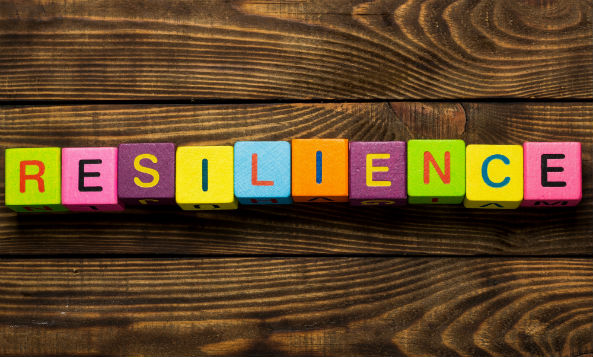
I recently read an article that focuses on building resiliency and found it so inspiring that I decided to share it with you. The author of the article makes an important point when she asks why some people can bounce back from setbacks, while others continue to struggle (Sherman, 2018). Those who overcome life challenges are said to demonstrate resiliency.
Resilient people use their skills and strengths to recover from problems. Resiliency is driven by personal values and beliefs, as well as thinking patterns. Personal experiences with challenging situations, natural use of optimism, social support, and one’s tendency to ruminate shapes resiliency.
f you think you need to build your resiliency, below are some key tips taken from Sherman’s (2018) article to help you.
- Reframe how you explain setbacks to yourself. Everyone has crises or fail to achieve goals. It’s important to avoid viewing yourself as a victim during these times. Use the experience as a learning lesson and way to enhance personal growth.
- Stop ruminating! Rumination is when you keep replaying an event and asking what if. This practice leads to more stress and hinders resiliency.
- Change negative thinking. If you tend to be a negative thinker, it’s important to break unhealthy thinking patterns. Practice staying in the present moment and challenge those negative thoughts.
- Practice reflective journaling. Reflective journaling can help you gain perspective of the situation. Write down the event using facts and key details. Next, express your reaction to the event. Finally, review what you have written and identify what you learned.
To further improve your resiliency, it is important to have an attitude of gratitude, focus on strengths, practice mindfulness, improve personal wellness habits, look to your support system, and be intentional. Having an attitude of gratitude promotes healthy coping and personal growth by reminding you of your power to act and expand possibilities. One way to do this is to list something you are grateful for each day. It is important to focus on strengths because when you are faced with life challenges you may lose perspective of the good things you have achieved or experienced. This thinking may bring you down and keep you in that negative frame of mind. Practicing mindfulness keeps you in the present moment, which helps you avoid ruminating on past failures or becoming anxious about the uncertainties of tomorrow. Improving personal wellness habits is important to building resiliency because getting enough sleep, eating a healthy diet, and exercising are all known factors in reducing stress levels. When you are going through a difficult time, having someone to confide in is important. You need a cheerleader, and someone who will hold you accountable. Finally, being intentional will help you avoid impulse and knee jerk reactions.
Commit to improving your resiliency and avoid allowing challenging situations to keep you down. Own your struggles and be confident in your ability to change your life today!
Sherman, R.O. (2018). Building your resiliency. American Nurse Today, 13(9), 26-28.

